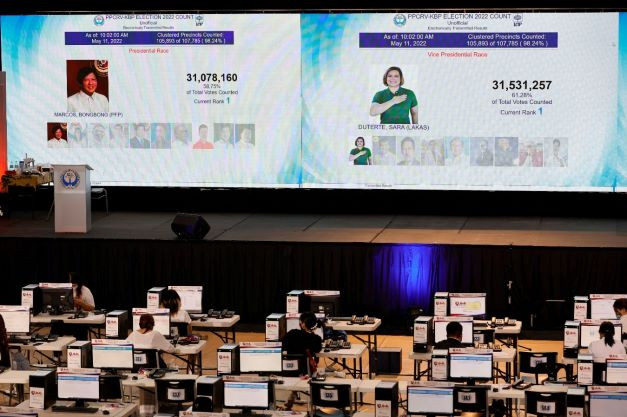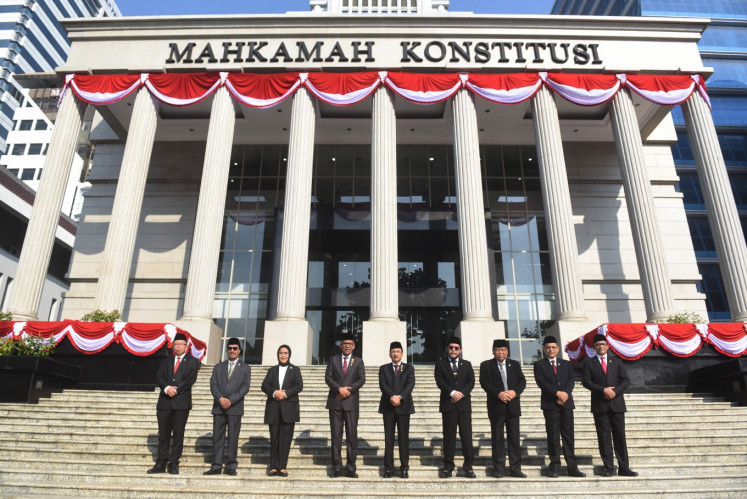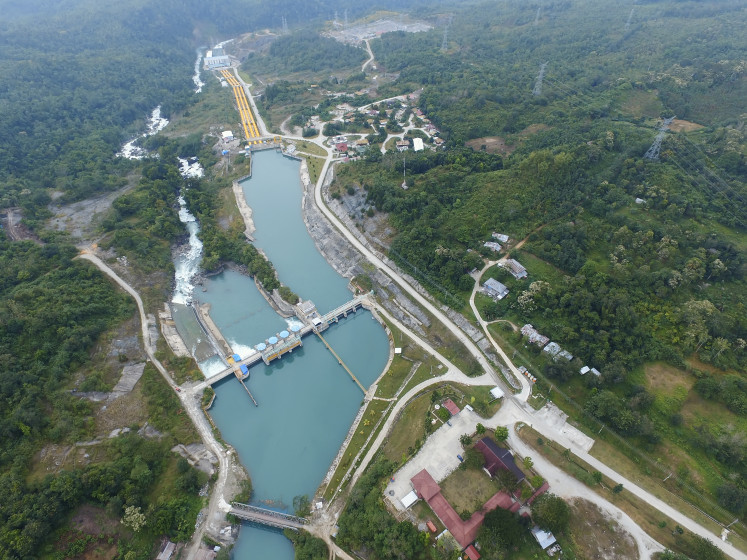Popular Reads
Top Results
Can't find what you're looking for?
View all search resultsPopular Reads
Top Results
Can't find what you're looking for?
View all search resultsWill the Marcos-Duterte duo survive?
A major challenge would be how Marcos Jr can build a working relationship with his deputy Sara Duterte, who has already openly expressed her desire to run for president in the future.
Change text size
Gift Premium Articles
to Anyone

D
ynastic politics is perhaps a dominant trait in the Asia Pacific region. This part of the world, in general, has a very fertile ground for political dynasties to flourish -- Pakistan, India, Bangladesh, Sri Lanka, Indonesia and plenty of other countries in the region have similar trends with regard to family dynasties.
But not one of these countries can match the Philippines’ obsession with dynastic politics. The political history of the Philippines is inundated with a very long list of politicians belonging to the same bloodlines. Despite strict constitutional restraints against dynastic politics, more than 250 political families have been dominating power across the country.
The Congress -- long controlled by members of powerful and influential clans targeted by the constitutional ban -- has not yet validated the legislation needed to define and enforce the provision. With the arrival of Ferdinand “Bongbong” Marcos Jr. and Sara Duterte as the new president and vice president, having achieved more than 31 million and 32 million out of 55 million casted votes respectively, the Filipinos have expressed their strong trust in the two most-powerful political families.
For Sara Duterte, courtesy her father, former president Rodrigo Duterte, who despite leading a brutal and controversial anti-drugs campaign, is still extremely popular in the country, it was relatively much easier to attract so many votes in her favor.
But for Marcos Jr., the namesake son of an ousted dictator, it was one of the greatest political comebacks in recent history. In 1986, when an army-backed “People Power” rebellion forced his father to relinquish power and leave the country with his family, nobody could have imagined that one day the Marcos family would be able to regain power – much less with a landslide victory.
Not only has the Philippines gone “back to the future” with the arrival of Marcos Jr. at the helm of affairs, but it has also reinforced the already much-entrenched dynastic politics.
However, Marcos Jr. was allowed to return to the country in 1991, along with his siblings and mother, Imelda, and since then, he has been working very carefully to carve a political career out of the debris of his father’s global infamy amid massive corruption charges. In his long political career, he has held various positions -- governor, congressman and senator -- that culminated in the presidency on June 30.
One of the key factors behind the stunning comeback of Marcos Jr. is the comprehensive and well-planned social media campaign to refurbish his family image. The Marcos family, which has been tainted with the allegation that his family amassed US$10 billion during the two decades of rule of elder Marcos, utilized social media to whitewash the family image.
A highly unregulated social-media landscape in the Philippines was shrewdly maneuvered by Marcos Jr. to rebrand the martial-law period of his father as the “golden age” of the Philippines. Though President Marcos Jr. has also always categorically refused to acknowledge or apologize for massive human-rights violations and plunder under his father’s rule and has defended his legacy, it is also a fact that a vast majority of older Filipinos have not yet forgotten the dictatorship days of his father.
There are plenty of things -- monuments erected after his father’s downfall in 1986, democracy shrines, a national holiday to celebrate the ouster of his father and the Philippine Constitution -- that will haunt him throughout his six-year presidency.
On the economy front, challenges are even grave. The Philippines is one of the countries worst-hit by the coronavirus pandemic, with more than 60,000 deaths and the worst recession since World War II. With roughly over 110 million people unemployed, putting too much burden on a feeble economy, President Marcos Jr. will have tough days ahead.
Another major challenge would be how Marcos Jr can build a working relationship with his deputy Sara Duterte, who has already openly expressed her desire to run for president in the future. She, who is also fondly called Inday Sara, actually won more votes than he did in the elections in May. It is also a fact that the Dutertes are considered to be more popular than Marcoses in the country.
A union of Mr. Marcos, whose family is extremely popular in the north, and Ms. Duterte, who draws her strength in the south, combined the power of two major political dynasties in the Philippines to win the presidential race.
But will they be able to maintain the same rapport and build a synergistic relationship is the most pricking question. Both are ambitious and any kind of political adventurism will ensue a new power struggle between the two, which may push the Philippines into a new political gridlock and uncertainty.
Both need to demonstrate political maturity to keep things on track.
***
The writer is a freelance columnist on international affairs.









